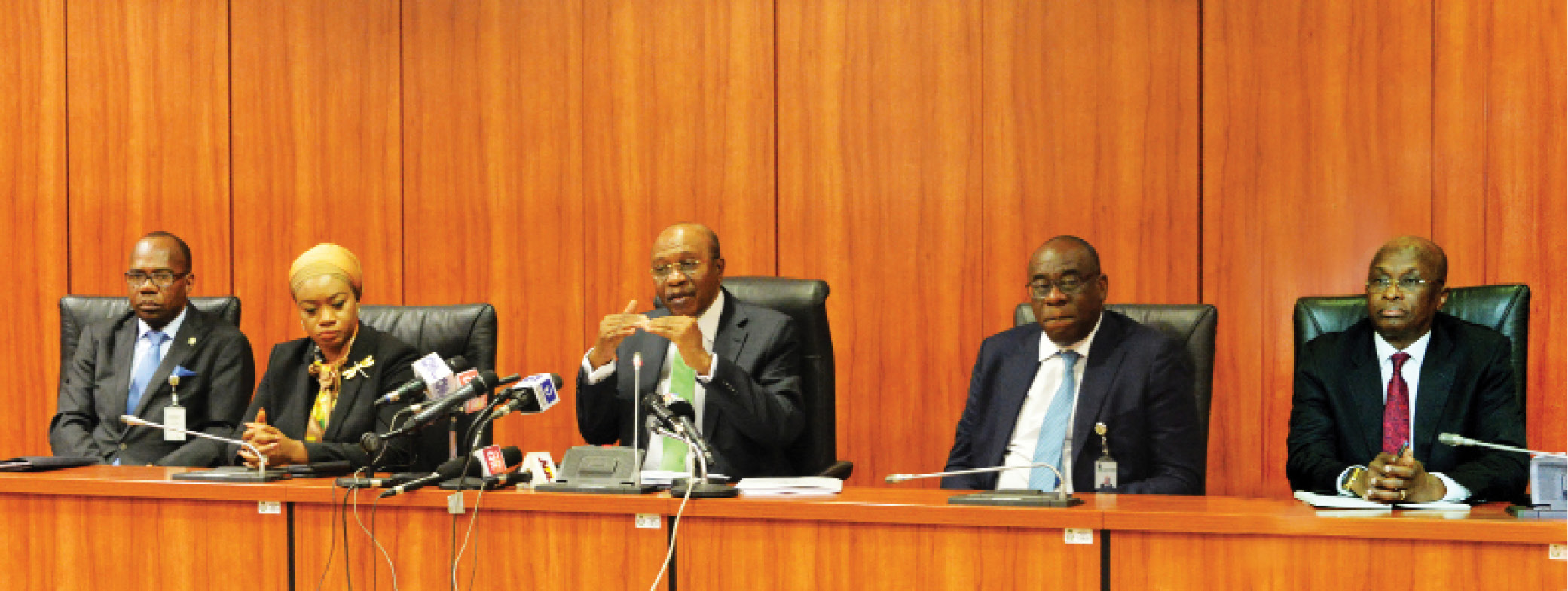The cashless policy announced by the Central Bank of Nigeria has elicited various reactions from the public. As part of the redesign of the naira, the Central Bank last week reeled out a number of measures limiting the amount of money that individuals and corporates can access either via electronic channels or over the counter in banking halls. It also listed stiff penalties attendant to the contravention of any of the limits.
Among the measures that have generated the greatest reaction is the one that limits the amounts that individuals and corporate organisations can withdraw per week at N100,000 and N500,000, respectively. The CBN said withdrawals above these amounts will attract fees of 5 per cent and 10 per cent, respectively.
Another measure that has received condemnation is the one that sets N100,000 as the maximum cash that can be withdrawn from Automatic Teller Machines, subject to a maximum of N20,000 cash withdrawal per day. Similarly, it limited the maximum amount that can be withdrawn via the point of sale (PoS) to N20,000 per day.
While some people rejected this policy outrightly, pointing out the problems they could create, others praised the new measures, noting also a number of socioeconomic challenges they are capable of solving.
- FG wrong to blame governors for poverty level – Ex-NHIS boss
- 2023: Shari’ah centre seeks protection of Muslims’ rights in S/West, others
The House of Representatives, at its sitting last week, after members took turns to condemn the policy, asked the central bank to suspend the policy slated to takeoff on January 9, 2023, pending what it called compliance with the provisions of the act establishing the bank.
The House also summoned CBN Governor Godwin Emefiele to brief the Chamber on several policies of the bank in recent times.
Also, the Senate, after expressing concern that the policy would have a negative effect on the economy, pledged to further debate on it on Tuesday.
Those opposed to the plans by the central bank have pointed out the potential challenges that the proposals could pose to the economy, including disruptions to everyday activities such as petty trading, movement of goods and services from one place to the other among other industrial activities. They also pointed out that Nigeria is dominated by the rural areas. A recent report by the National Bureau of Statistics said as much as 70 per cent of the country’s population lives in rural areas.
We, in Daily Trust, agree that cashless policy is the way to go. Indeed going cashless is the way of the global economy, as nations leverage developments in financial technology to reduce the volume of cash involved in financial transactions. These developments are redefining the concept of money, and nations are getting huge benefits from this. A predominantly cash-based system aids financial fraud, including money laundering as those involved in this nefarious act prefer to deal in cash as part of measures to erase potential links that could help security agents trace their activities. It also enables citizens to stash funds in their homes as evident by recent developments where the banks, in just a few weeks, recorded deposits of huge amounts of money, following the announcement of the redesign of the naira.
It is also clear that the predominance of cash in the Nigerian economy has been an added impetus to the festering scourge of terrorism. It has aided the growth of kidnapping for ransom, as the criminals abduct people at will and with so much ease, knowing that relatives of their victims can easily mobilise cash for ransom payment.
Adopting a cashless policy will also save the country the high cost of printing the large volumes of currency notes.
However, as laudable as the idea is, it does not appear as if all necessary infrastructure have been put in place to ensure a seamless implementation, especially with the takeoff date just barely three weeks away.
In a country with very limited infrastructural facilities, including a financial technological architecture that is still at its inchoate stage, pegging daily withdrawal at N20,000, could grind economic, social and industrial machinery of the country to a halt if care is not taken.
We, therefore, call on all the relevant authorities to join forces to ensure that issues bordering on infrastructure, such as power, internet access and connectivity are adequately addressed.
The current high level of online financial transaction failure, which is due to poor communication network, must be tackled with speed. This also includes the deployment of more PoS operators in the rural areas, and making their operations effective. We also recognise the fact that there are different segments of the Nigerian population that need different conditions for them to become part of the plan. Therefore, there is need for massive campaigns for all Nigerians to understand the need for this policy and to get their buy-in. If these are not done, most of the rural dwellers will be cut off from this programme, and no policy can be described a success if it misses 70 per cent of its target.
There is also the thorny issue with PoS operators who are likely to be out of business with this policy; that also needs to be addressed. It is only when all of these are put in place/addressed that the CBN can seamlessly implement this policy.

 Join Daily Trust WhatsApp Community For Quick Access To News and Happenings Around You.
Join Daily Trust WhatsApp Community For Quick Access To News and Happenings Around You.



